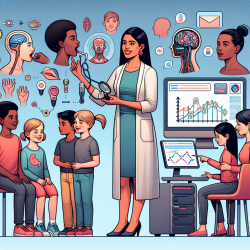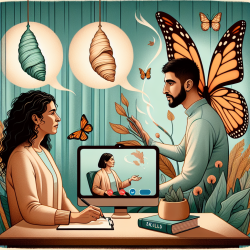Introduction
The global shift to online education during the COVID-19 pandemic has been both a challenge and an opportunity for educators worldwide. In Saudi Arabia, this transition was particularly swift, as the government announced a complete shift to online learning in March 2020. This blog post explores the findings of a recent study titled Saudi Arabian Students’ Beliefs about and Barriers to Online Education during the COVID-19 Pandemic, which provides insights into the beliefs and barriers experienced by Saudi Arabian students during this period. These insights can help practitioners enhance their skills and improve educational outcomes for children.
Key Findings from the Study
The study employed semi-structured interviews with ten female undergraduate students to explore their perceptions of online learning during the pandemic. Several key themes emerged from the analysis:
- Beliefs about Online Learning: Students generally viewed online learning as a mandatory necessity rather than a preferred method. While some appreciated the flexibility, others missed the interactive nature of face-to-face learning.
- Motivations for Online Classes: The primary motivation for students was to continue their education and graduate on time. However, challenges such as maintaining focus in a home environment were prevalent.
- Barriers to Online Learning: Technological, economic, and educational barriers were identified. Issues such as unreliable internet connections, the cost of devices, and the lack of standardization in online assessments were significant hurdles.
- Social and Religious Values: The study highlighted the role of social support and Islamic values in shaping students' experiences and attitudes towards online learning.
Implications for Practitioners
Understanding these findings can guide practitioners in creating more effective online learning environments. Here are some actionable steps based on the study's insights:
- Enhance Communication: Open communication between students and instructors is crucial. Practitioners should focus on building strong relationships and maintaining regular interactions to foster a supportive learning environment.
- Address Technological Barriers: Providing technical support and ensuring reliable internet access can significantly improve students' online learning experiences. Schools and institutions should consider partnerships with internet service providers to offer affordable solutions.
- Incorporate Flexibility: Given the diverse needs and preferences of students, offering a hybrid model that combines online and face-to-face learning could enhance engagement and motivation.
- Consider Cultural Context: Understanding the cultural and religious values of students can help tailor educational approaches that resonate with their beliefs and expectations.
Encouraging Further Research
While this study provides valuable insights, it also highlights the need for further research. Expanding the sample size and including male students could provide a more comprehensive understanding of the online learning experience in Saudi Arabia. Additionally, exploring the long-term impacts of online education on students' academic and social development would be beneficial.
To read the original research paper, please follow this link: Saudi Arabian Students’ Beliefs about and Barriers to Online Education during the COVID-19 Pandemic.










